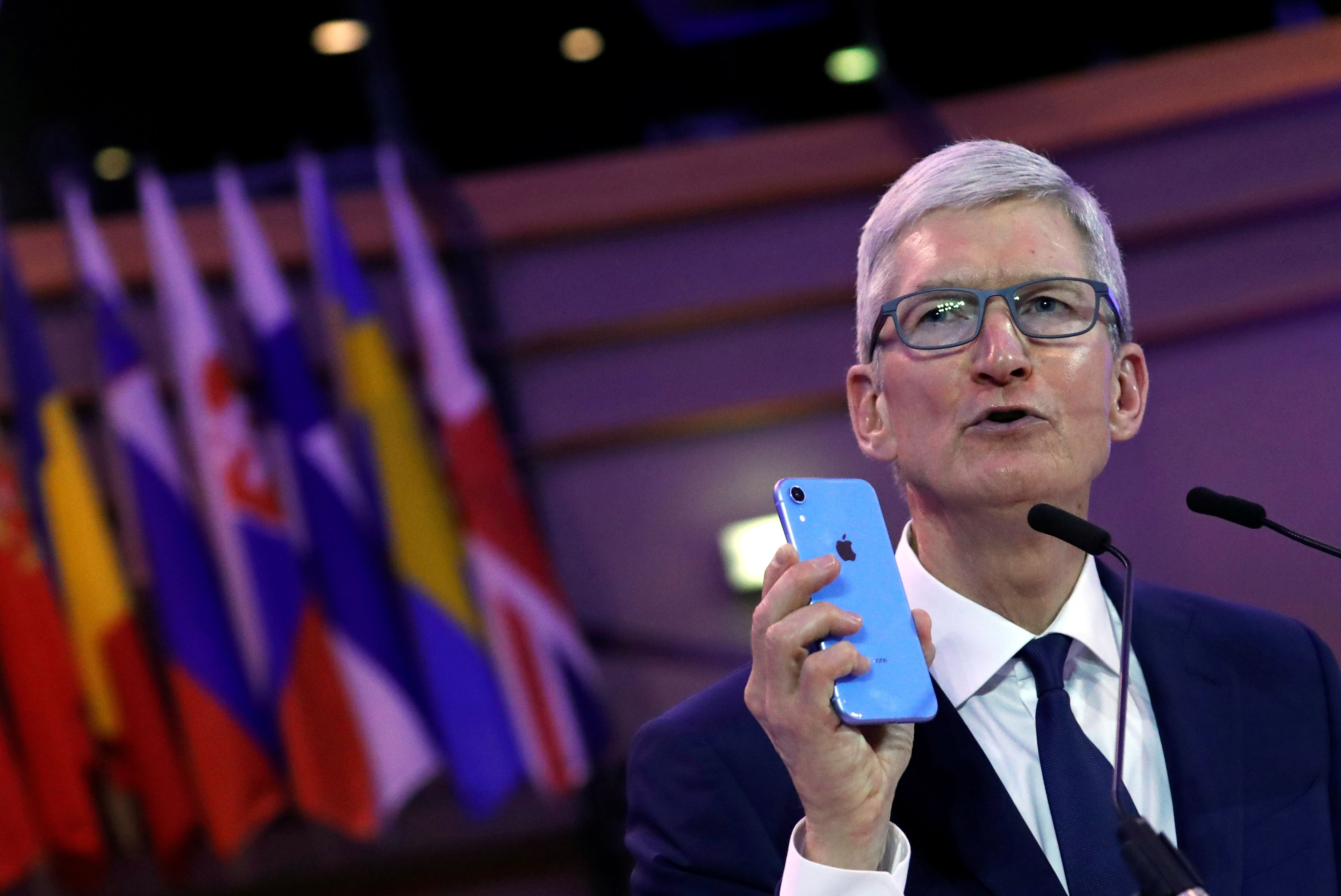Prospects for the Negotiations of the EU Digital Markets Act
Negotiations of the Digital Markets Act (DMA), one of two flagship EU legislative proposals to regulate online platforms, are entering the decisive phase. France, presiding over the EU Council, wants to bring about an agreement between the states, the European Commission (EC), and the European Parliament (EP) by mid-2022. Adoption of certain EP amendments increasing the obligations of American platforms only may temporarily weaken the cooperation between the EU and United States in the area of digitalisation. Ultimately, however, it will gain momentum in the face of competition from China.
 Fot. Reuters/ POOL/ FORUM
Fot. Reuters/ POOL/ FORUM
The EC presented its draft Digital Markets Act in December 2020. After several months of work in relevant committees, in November 2021 the Council agreed a common negotiating position, while the EP did so in December. Since January 2022, trilateral negotiations have been underway between the EC, the EP, and the Member States (“trilogues”), which will decide the final shape of the DMA regulation.
Provisions of the Digital Markets Act. The purpose of the DMA is to ensure beneficial principles of operation for consumers and companies of the largest internet platforms, called “gatekeepers” by the Commission. They are platforms that have a significant impact on the internal market, defined by market value or turnover and also provide a certain type of service (see Table) in at least three Member States. In addition, the EC imposed a quantitative criterion in the form of a minimum of 45 million active end-users (consumers) based or residing in the EU and more than 10,000 annually active business users based in the Union. After the entry into force of the DMA, it is the responsibility of these largest companies to notify the EC of their qualification for gatekeeper status.
Under the DMA, gatekeepers will have certain prohibitions and obligations. For example, it will be forbidden to use certain data (especially non-public) of its business users in order to gain a competitive advantage over them (e.g., by selling similar products through its platform). In addition, they will not be allowed to combine personal data obtained from the platform's basic services with any other service unless it is compliant with the GDPR. The gatekeeper must also not favour its own services in search algorithms (e.g., in search engines). The most important responsibilities of the gatekeepers include allowing business users to access, transfer, and reuse some of the data generated by their platform activities. All users should be allowed to remove pre-installed software (e.g., App Store on Apple devices) and be able to purchase services for their devices from other sources. They should also provide advertisers and publishers with access to their own data and insight into the tools used to measure the results of advertising campaigns. The gatekeepers are also expected to inform the Commission about planned acquisitions of other companies.
The Commission will be able to carry out investigations and monitor the fulfilment of the duties of the gatekeeper. In case of non-compliance, the EC will impose fines on a platform of up to 10% of the company’s annual global turnover.
The regulations are to complement EU competition policy, which has long been unable to effectively limit the monopolistic tendencies of the largest platforms. The DMA aims to restore balance in some areas of the digital market, potentially opening up new opportunities for small and medium-sized enterprises to develop.
Positions of the Council and the EP. The EU Council’s common position with the EC does not significantly interfere with the content of the proposal. It shortens the timeframe from 60 to 45 days for the EC to establish gatekeepers based on data provided by them and raises the criteria for their qualification. It also includes a new obligation increasing the right of end-users to opt out of a platform’s core services. The Council also proposes to define more precisely who are “active end-users” and “active business users”. It confirms that the EC is the sole implementer of the regulation and that the Member States can empower national competition authorities to initiate investigations into possible infringements and report their findings to the Commission. However, during the “trilogues” stage, Germany, France, and the Netherlands may push for the introduction of shared supervisory competences between the EC and the national authorities, as they did last year.
The EP’s proposals are more out of sync with the original draft than the Council’s negotiating position. Parliament wants to regulate fewer platforms, raising the threshold for a given platform to be considered a gatekeeper, for example, by requiring it to have €8 billion in annual turnover in the European Economic Area instead of €6.5 billion or market value of at least €80 billion in the last fiscal year. The motivation is to avoid a situation in which companies with high turnover in Europe but with definitely weaker market position than the largest global entities will be regulated under the DMA. It also proposes to extend the material scope of “core platform services” provided by gatekeepers to include web browsers, voice assistants, and hybrid TVs (such as Apple TV). In addition, the EP proposes to increase penalties for repeated disregard of DMA obligations through financial sanctions ranging from 4% to a maximum of 20% of annual turnover. It also wants to strengthen the powers of the EC against “killer” acquisitions, which are designed to remove potential competition, giving the Commission the ability to temporarily halt any acquisition by platforms that seriously and systematically violate the DMA. In addition, MEPs propose a complete ban on tracking ads for accounts held by minors or which incorporate certain sensitive data (e.g., political, religious information). Such ads present personalised advertising content to the user based on an algorithm developed by a given platform. The MEPs also insist that messengers and social media be interoperable, meaning that the platforms ensure the technical capability of users to communicate between them (e.g., Messenger users with Signal users).
Importance of the DMA for Relations with the U.S. The American administration criticises some provisions of the DMA. It objects, in particular, to the EP’s proposed amendments increasing the quantitative criteria for assigning gatekeepers. If adopted, the regulation would pertain only to U.S.-based companies. Moreover, the extension of the regulations proposed by the EP to include voice assistants or advertising services will affect additional services offered by Google, Apple, and Amazon (see Table). At the same time, the U.S. supports the proposal that the European Commission will be the only institution that enforces the DMA, which will make it easier for the largest corporations to operate in the EU.
American diplomacy will try to influence the final shape of the regulations during the ongoing “trilogues”, expecting that the DMA will also cover entities from other countries (mainly European, because Chinese companies have too little market share in Europe). Failure in this dimension may translate into weakening cooperation within the Transatlantic Trade and Technology Council, established last year.
Perspectives. Both for the Member States and the EP, the priority is to reach an agreement as soon as possible so that the rules enter into force at the beginning of 2023. The current differences between the parties should not extend this process. The fate of some of the EP amendments, such as the ban on certain tracking ads, is the most uncertain. While this is a key proposal for the privacy and security of end-users, there is little interest in it outside Parliament and NGOs.
The DMA should increase competition in the internet market. Users may experience a short-term decline in the quality of services offered by platforms (e.g., due to limitations on the use of their data, offers may be less applicable), but rebalancing the market should allow smaller EU companies to develop.
Technological cooperation with the U.S. may worsen temporarily, but in the longer term, both sides are interested in deepening it in areas where they can effectively oppose Chinese domination. Additionally, implementation of the regulations by the largest EU-based platforms could accelerate an analogous legislative process in the U.S.
For Poland, increasing competitiveness in the single market is a priority due to the development of small but technologically advanced enterprises. At the same time, it is in the interest of the state to tighten EU-U.S. cooperation in the area of digitalisation, related to infrastructure (including cloud-based infrastructure) and investments in the country.
Services Defined as a “Core Platform Service” in the Digital Markets Act.
|
Type of Online Service |
Examples |
In the EC Proposal |
Council’s Position |
EP’s |
|
Intermediation services (Application shop, Marketplace) |
App Store, Amazon Marketplace |
YES |
YES |
YES |
|
Search engines |
|
YES |
YES |
YES |
|
Social networking services |
Facebook, Instagram |
YES |
YES |
YES |
|
Video-sharing platform service |
YouTube |
YES |
YES |
YES |
|
Mobile number-independent interpersonal communication services |
|
YES |
YES |
YES |
|
Cloud Computing Services |
Amazon Web Service |
YES |
YES |
YES |
|
Operating Systems |
Android, iOS |
YES |
YES |
YES |
|
Advertising services |
Google Ads |
YES |
YES |
YES |
|
Web Browsers |
Google Chrome |
NO |
NO |
YES |
|
Virtual assistants |
Amazon Alexa |
NO |
NO |
YES |
|
Connected TVs |
Apple TV, Amazon Fire |
NO |
NO |
YES |



